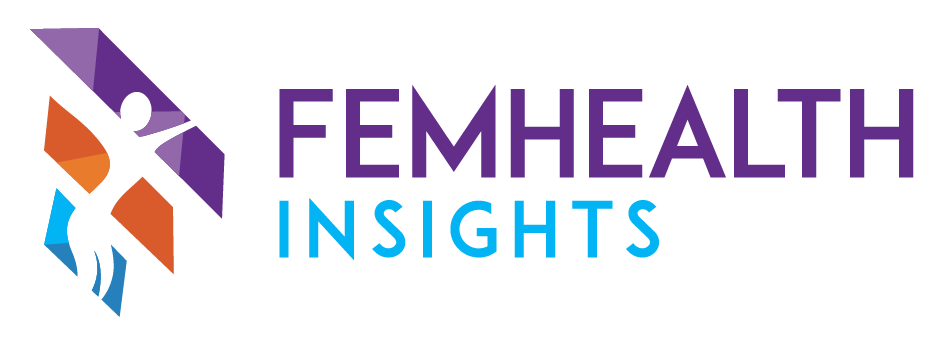Pregnancy & Cardiovascular Health: 3 Innovations to Know About
Written by Jillian Levovitz, MBA, Chief Strategy Officer, FemHealth Insights.
As February comes to a close, and with it the end of American Heart Month, we wanted to bring awareness to the unique risk of cardiovascular disease for pregnant women.
Cardiovascular disease is generally considered a condition that impacts older people who are past their reproductive years and is therefore, not often on the radar of younger women who are or are planning to get pregnant.
But, heart disease, stroke, and pregnancy-related complications are all leading causes of death for women between the ages of 20 and 44.
Furthermore, cardiovascular complications are the number one cause of maternal mortality in the US, accounting for 16% of all pregnancy-related deaths. Black and Native American women are at significantly higher risk of both cardiovascular challenges and resulting maternal mortality.
Black women have a 23% higher probability of suffering a heart attack and 57% higher probability of experiencing a stroke during pregnancy.
While pregnant, the female body goes through substantial changes in order to support the development of the fetus. A number of these adjustments impact the cardiovascular system, including increased heart rates, cardiac output, and blood volumes.
Despite being generally well tolerated, these physical changes lead to pregnancy complications in an estimated 30% of women, including high blood pressure, preeclampsia, and gestational diabetes.
Risk factors for pregnancy complications include:
Being 40 or older
Overweight & obesity
Hypertension
Having pre-existing heart problems
Not being physically active
Using opioids or other illegal drugs
Alcohol consumption & smoking
General pre-existing health conditions such as: diabetes, sleep apnea, anemia, or polycystic ovary syndrome (PCOS)
In addition, social determinants of health such as being a minority, of low socioeconomic status, or living in a rural area have also been correlated with increased risk of pregnancy complications and poor outcomes.
The most common cardiovascular conditions that can develop during pregnancy are hypertension/ high blood pressure, which impacts over 10% of pregnancies, and preeclampsia which presents in 5-8% of pregnancies.
Hypertension that is present before pregnancy or develops before 20 weeks of gestation is called chronic hypertension and is correlated with a 25% chance of developing preeclampsia.
Both hypertension and preeclampsia can cause serious pregnancy complications such as heart attack, stroke, placental abruptions, low birth weight, preterm delivery, gestational diabetes, and fetal or maternal mortality. Preeclampsia that isn’t treated can lead to eclampsia which is associated with seizures and coma.
Symptoms of preeclampsia include:
High blood pressure
Changes in vision
Headaches
Nausea or dizziness
Quick weight gain
Edema or swelling in the hands, feet or legs
Difficulty breathing
It is also important to note that even after giving birth, women are still at risk for a cardiac event for months after delivery. There is also a specific type of heart failure called peripartum cardiomyopathy that can develop between the last month of pregnancy to five months postpartum.
Although it is quite rare, risk factors include a history of cardiac conditions and high blood pressure.
Beyond the high prevalence of maternal cardiovascular disease, women who suffer complications during pregnancy are also at a higher risk for cardiovascular disease later in life.
Studies have shown that women with gestational diabetes have a 68% higher risk of developing cardiovascular disease and high blood pressure leads to a 67% increased risk of developing cardiovascular disease.
Furthermore, preeclampsia has been demonstrated to result in double the risk of coronary heart disease and stroke and four times the prevalence of heart failure in older women.
The prevalence of cardiovascular disease in the general population is highest among people over 50 years of age and care paradigms are generally built with screening to begin when patients reach this age bracket.
Women who develop cardiovascular disease after pregnancy complications though are shown to exhibit symptoms at younger ages necessitating the need for updated care paradigms.
It is imperative that these patients understand their risks and are regularly monitored for cardiovascular conditions to allow for early detection, early intervention, and improved outcomes.
An estimated 68% of cardiovascular-related deaths during pregnancy are preventable with effective interventions. Thankfully, there are a number of exciting FemHealth innovations facilitating early diagnosis of pregnancy complications, including:
Biorithm — A comprehensive obstetric remote monitoring solution including blood pressure monitors and glucometers.
Mirvie — A platform working to predict preeclampsia and other pregnancy complications with a non-invasive blood test months before they present.
Efelya — A digital health tool making physiological pregnancy monitoring and pathological pregnancy screening for the most common pregnancy complications accessible to all women regardless of their country of residence or their access to local obstetric resources.
It is also important to remember that one of the best ways to prevent cardiovascular disease before, during, and after pregnancy is with healthy lifestyle habits such as eating well and being active.
Therefore, we also want to give a shout-out to FemTech startup Baby2Body which offers exercise and nutrition programs for prepregnant, pregnant, and postpartum moms.
About the Author:
Jillian Levovitz, MBA, is an experienced healthcare executive, the Founder, and CEO of OcciGuide, and Chief Strategy Officer at FemHealth Insights where she is responsible for consulting and research projects.



